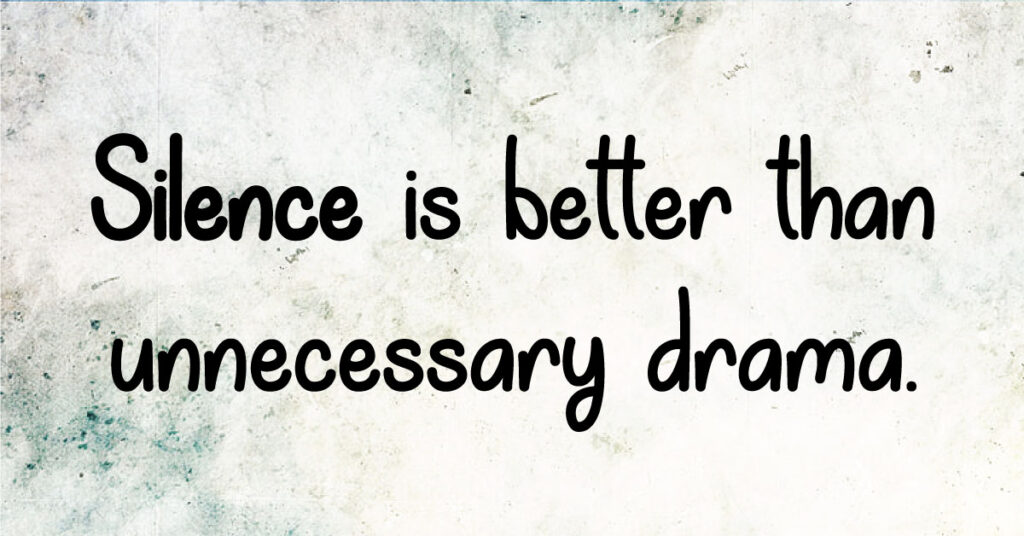Toxic habits can be incredibly draining and have a negative impact on our energy levels. These behaviors can range from negative self-talk to procrastination, and they can leave us feeling tired, unmotivated, and unproductive. While we may recognize that these habits are harmful, we often continue to engage in them because they serve a purpose for us.
They might provide temporary relief from anxiety, help us avoid difficult tasks, or give us a sense of control over our lives. However, over time, these toxic habits can become deeply ingrained and hinder our ability to lead a happy and fulfilling life. In this article, we’ll explore some common toxic habits that drain our energy, the effects they can have on our lives, and strategies for breaking free from them. By understanding why we engage in these harmful behaviors, we can take steps to overcome them and cultivate a more positive and energized life.
Here are 10 toxic habits that drain your energy
Negative self-talk
Negative self-talk can be extremely harmful to mental and emotional health. Constantly criticizing and putting yourself down can drain your energy, leaving you feeling unmotivated and exhausted. Negative self-talk can lead to a lack of confidence and self-esteem, making it difficult to accomplish goals and pursue passions.
Over time, this toxic habit can become deeply ingrained and harm overall well-being. Recognizing negative self-talk and actively working to replace it with positive affirmations and self-compassion, individuals can break free from this draining habit and cultivate a more positive and energized mindset.
Procrastination
Procrastination is a common and often harmful habit that can drain an individual’s energy levels. Putting off important tasks can lead to increased stress and anxiety levels, leading to a cycle of negative emotions. This habit can be particularly draining because it often leads to last-minute rush and panic, which can further increase stress levels. Individuals who struggle with procrastination may find that they have difficulty concentrating, sleeping, or enjoying life outside of their work.
Identifying the underlying causes of procrastination and developing strategies to overcome it, individuals can break free from this toxic habit and increase their overall energy levels and productivity.
Overthinking
Overthinking and worrying excessively can be draining habits that negatively impact mental health. Dwelling on negative thoughts can lead to increased anxiety, depression, and other mood disorders, decreasing overall energy levels. This habit can be particularly draining because it can feel like there is no escape from negative thinking patterns.
Individuals who struggle with overthinking may find that they have difficulty focusing, finding joy in life, or sleeping at night. By developing mindfulness and stress-reducing techniques, individuals can break free from this toxic habit and cultivate a more positive and energized mindset.
People-pleasing
This is a habit that involves putting others’ needs before one’s own and can be emotionally draining. This habit can leave individuals feeling unfulfilled and exhausted as they constantly prioritize others’ needs over their own.
People-pleasers often struggle with setting boundaries, saying no, and advocating for themselves, leading to feelings of resentment and burnout. By learning to prioritize self-care and setting healthy boundaries, individuals can break free from this toxic habit and increase their overall energy levels and satisfaction in life.
Comparing yourself to others
The need to constantly comparing oneself to others is a common and harmful one that can drain self-esteem and leave individuals feeling inadequate. Social media often heightens this habit as users are frequently exposed to curated, edited, and filtered versions of other people’s lives. This habit can lead to feelings of jealousy, bitterness, and inferiority, negatively impacting mental health and overall energy levels.
To break free from this toxic habit, individuals must learn to accept themselves for who they are and practice gratitude for what they have. By focusing on personal growth and progress rather than external factors, individuals can cultivate a more positive and energized mindset.
Holding grudges
Holding onto anger and resentment is a toxic habit that can significantly drain emotional energy and prevent individuals from moving forward. The negative emotions associated with holding grudges can lead to increased stress levels, anxiety, and even depression. This can be particularly draining because it often involves replaying negative events or conversations in one’s mind, leading to rumination and obsessive thinking.
Getting out of this habit will require for individuals to learn to forgive themselves and others, practice empathy and compassion, and focus on positive solutions rather than dwelling on past resentments. This shift in mindset can help individuals increase their emotional energy levels and cultivate healthy relationships.
Multitasking
Multitasking is a habit that involves trying to do too many things at once, and it can be overwhelming and mentally draining. Juggling tasks can lead to decreased productivity and increased stress levels, as the brain becomes overloaded with information. This habit can be particularly draining because it often involves switching between tasks quickly, leading to feelings of fatigue and burnout.
Individuals must learn to prioritize tasks, focus on one thing at a time, and practice mindfulness and stress-reducing techniques. By focusing on one task and completing it before moving onto the next, individuals can increase their mental energy levels and productivity.
Overscheduling
Scheduling with too many commitments is a habit that can lead to increased stress levels and physical exhaustion. Over-scheduling oneself can lead to burnout, decreased productivity, and an overall feeling of being spread too thin. This habit can be particularly draining because it often involves rushing from one commitment to the next, leaving little time for self-care or relaxation.
Individuals who struggle with over-scheduling may find that they have difficulty sleeping, eating, or enjoying life outside of their work or obligations. By prioritizing self-care and setting limits on commitments, individuals can break free from this toxic habit and increase their overall energy levels and well-being.
Ignoring self-care
Neglecting self-care activities such as exercise, sleep, and healthy eating is a habit that can significantly drain physical energy levels. Poor eating habits and lack of exercise can lead to decreased stamina and increased fatigue, while insufficient sleep can lead to feelings of tiredness and sluggishness throughout the day. This habit can be particularly draining because it often involves a cycle of poor habits that further decrease energy levels.
People who struggle with neglecting self-care may find that they have difficulty focusing or completing tasks, leading to increased stress levels and burnout. By prioritizing self-care activities and developing healthy habits, individuals can increase their physical energy levels and overall well-being.
Allowing negative people in your life
Surrounding yourself with negative people is a habit that can significantly drain emotional energy, leading to feelings of unhappiness and exhaustion. Negative people tend to focus on the negative aspects of situations and may engage in gossip or complaining, leading to increased stress levels and decreased positivity.
This habit can be particularly draining because it often involves absorbing others’ negative energy, leading to feelings of emotional burnout and fatigue. Individuals who struggle with negative social circles may find that they have difficulty maintaining positivity or motivation in their personal lives.








